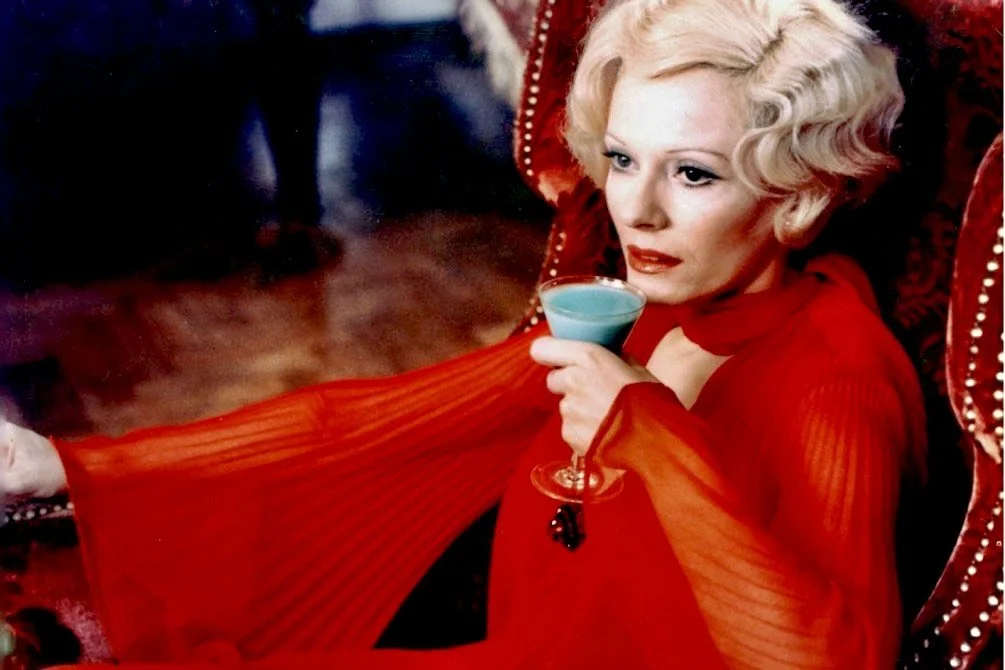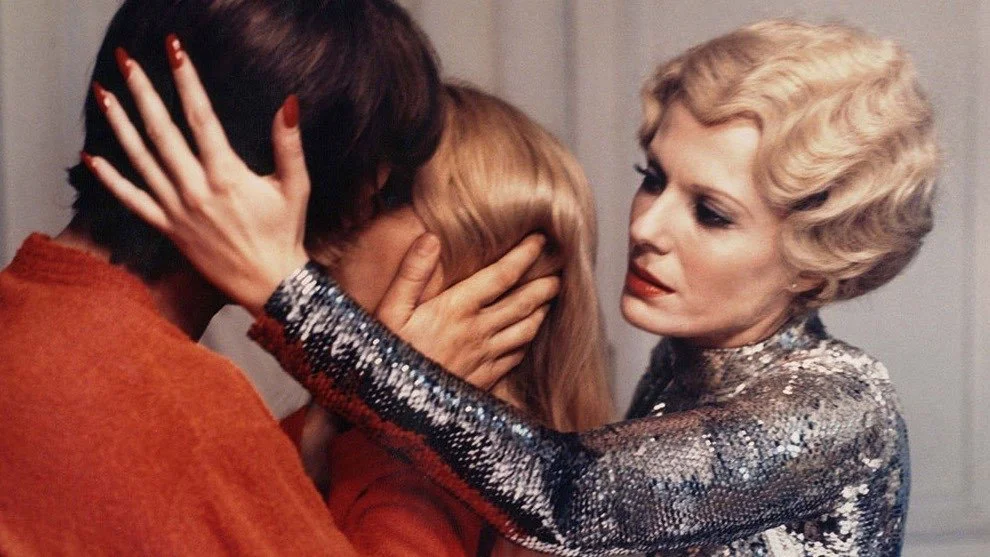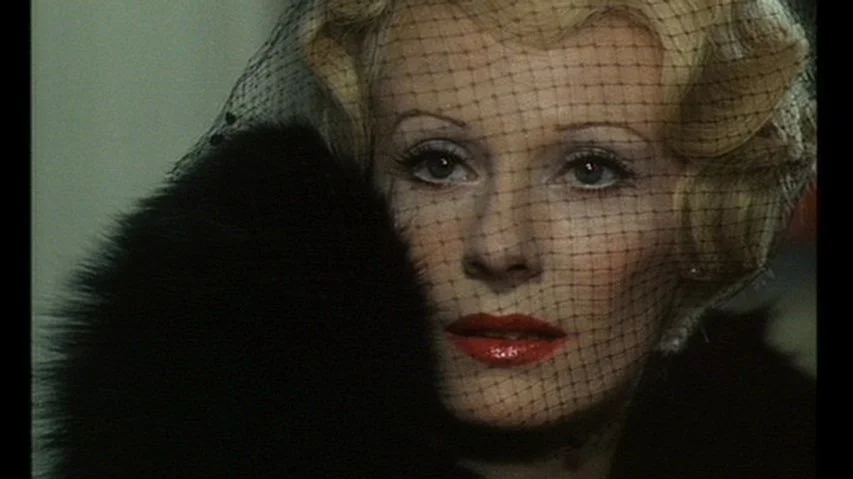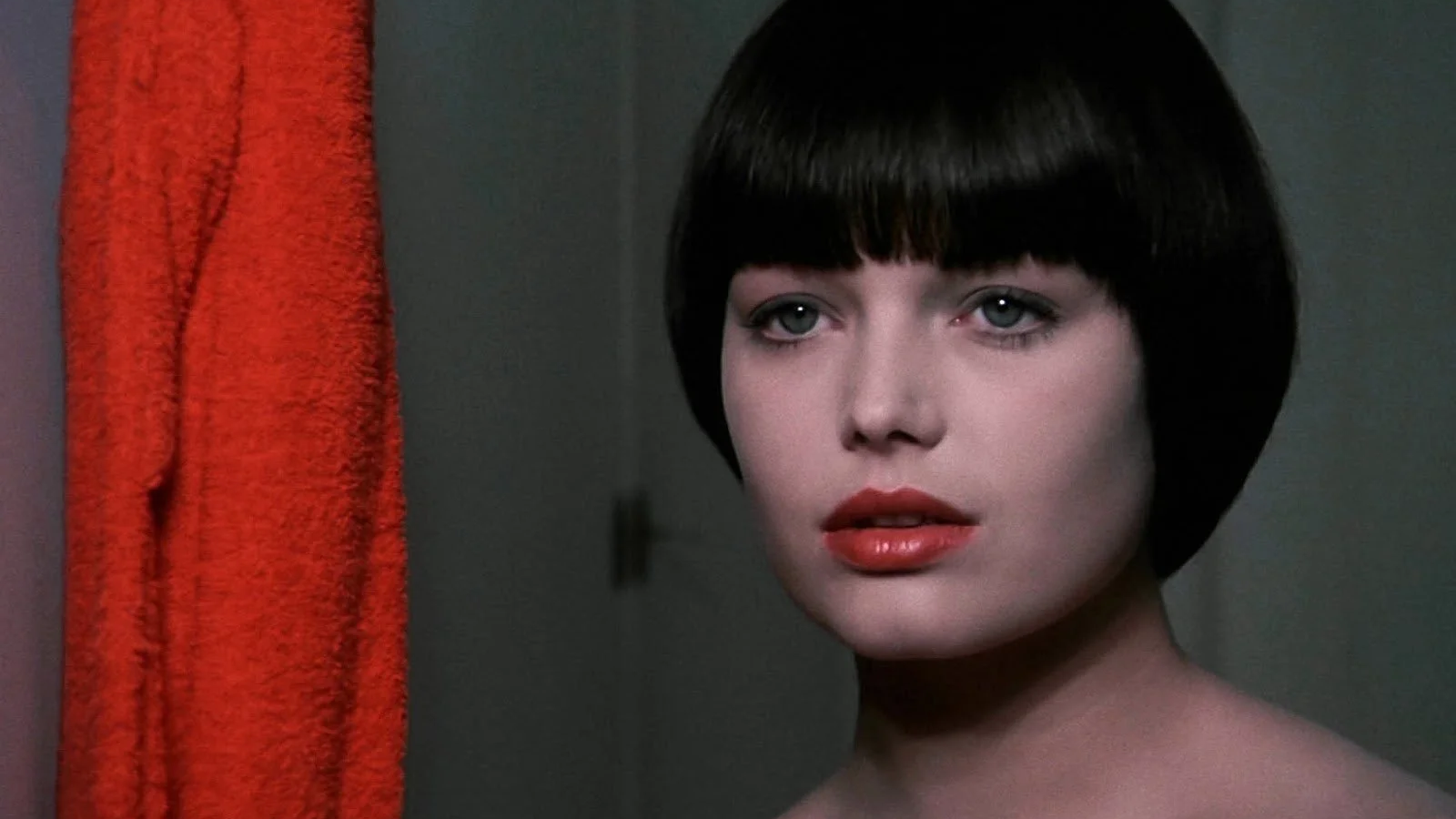FrightFest - UK Premiere of the 4K Restoration
Daughters of Darkness Review: Lesbian Vampire Thriller is a Sumptuous, Psychosexual Delight
Harry Kümel’s 1971 film is a standout in the subgenre
by Alex Secilmis 24 August 2025
© Radiance Films
While fitting comfortably into the sapphic vampire sexploitation craze of the 1970s, Daughters of Darkness is widely considered a little too erudite for that category. Such films have a flimsy plot expressly constructed to accommodate lurid thrills, but the intimate scenes in Harry Kümel’s film don’t seek to exploit so much as they seek to probe the web of relationships between four guests at a luxury hotel on the Belgian coast. Following a newlywed couple caught in the gaze of a glamorous Countess, Kümel’s Euro-horror is a tale of lust and carnage stylishly relayed and dripping in atmosphere.
Stefan (Dark Shadows’ John Karlen) and Valerie (Danielle Ouimet) Chilton are travelling to his family home in Britain hours after getting married in Switzerland. When their train gets derailed, they’re forced to spend a cold night in Ostend at the Grand Hotel des Thermes during its off-off-season. Consequently, there are only two other guests: Countess Elizabeth Báthory (Delphine Seyrig) and her “secretary”, Ilona (Andrea Rau). Much to the chagrin of the latter, the Countess sets her sights on Valerie, eventually testing her marriage with the sadistic Stefan.
© Radiance Films
Blending controlled composition, rich cinematography, and a salaciously hypnotic score, Daughters of Darkness unfolds like a hazy dream presented with the utmost precision. Right from an opening train carriage sex scene bathed in bluish-purple light, Kümel’s touch is generously impressionistic. DP Eduard van der Enden captures the cool blues of the wintry seaside setting and contrasts them with colour-saturated costumes, cocktails, and—inevitably—blood. Meanwhile, composer François de Roubaix’s sinister mix of synth, string, and choral elements is remarkably synergetic and establishes an otherworldly tone, framing the hotel as an eerie liminal space. For more than obvious reasons, it is a deeply sensual film.
While the film’s greatest strength is its heightened atmosphere, the psychodrama at its heart is superbly performed by the four main actors. John Karlen is especially captivating in a role characterised by violent masculinity in both its most mundane and horrific forms, while a scene-stealing Delphine Seyrig plays the Countess Báthory with an intriguing blend of sensitive, seductive, and menacing charm. In fact, her red-lipped villain is a dramatisation of a real Hungarian noblewoman of the same name—believed to be a serial killer who drank blood to maintain her youth—and Seyrig has the requisite gravitas to embody such a figure.
© Radiance Films
There is no mistaking that Daughters of Darkness is a queer horror film, something that isn’t merely indebted to the Countess’ sexuality. The suspense is mined from Báthory's threat to the institution of marriage, and what makes the film’s queer position more interesting is its portrayal of the heterosexual relationship as fraught even before her arrival. The possessive, petulant Stefan is unequivocally the true antagonist, meaning that the Countess’ conversations with Valerie are both a seduction and an effort to convince her of her husband’s intention to make her a “slave”. Nevertheless, there is a reveal and a climactic scene—to say more would spoil the ending—that complicate the film’s queer position in a way that undermines the nuance of its representation.
While no fangs are shown and kissing is favoured over a bitten neck, the eroticism of Daughters of Darkness elegantly engages with the vampire myth’s sexual subtext. The result is a dreamy slice of European horror, and the Grand Hotel des Thermes is well worth a stay.



